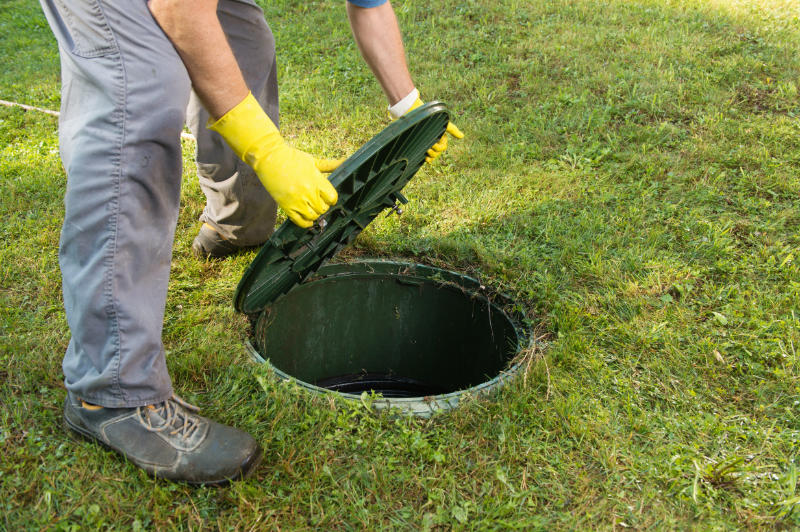 A septic system needs to be inspected and pumped regularly to ensure that the system is functioning properly. The frequency of inspection and pumping will depend on several factors such as the size of the tank, water usage and the size of the household or business. Since these factors are unique and changeable, regular inspections should be made to check the tank’s condition as well as its other parts and to determine whether the tank needs to be pumped. Septic system inspections should be performed by a licensed private contractor such as SewerMan of Lyndhurst, OH.
A septic system needs to be inspected and pumped regularly to ensure that the system is functioning properly. The frequency of inspection and pumping will depend on several factors such as the size of the tank, water usage and the size of the household or business. Since these factors are unique and changeable, regular inspections should be made to check the tank’s condition as well as its other parts and to determine whether the tank needs to be pumped. Septic system inspections should be performed by a licensed private contractor such as SewerMan of Lyndhurst, OH.
For Septic System Inspections in Lyndhurst, OH Call 216-548-2004
-

Sewer-Man was fast and dependable to clear my sewer line!
 Tracy
Tracy

How Septic System Inspections are Done
Depending on the needs of the site SewerMan inspectors will determine whether or not your septic system needs a limited visual inspection or a more detailed inspection.
Limited Visual Septic System Inspections
A limited visual inspection involves turning on several faucets and letting them run for 20 minutes or allow a flow of 180 gallons of water. This will flood the system with an uncommon amount of water. The inspector will determine if there are signs of odor or leakage. A dye can also be used to detect a leakage. If there is a leakage, this could be a sign of system failure. If there is no leakage but odor emanates from the system then the tank may require pumping for a more extensive inspection.
Extensive Septic System Inspections
The first step in extensive septic system inspections is to locate the position of the septic tank. Information on where the septic system is located can be seen in a sketch of the system attached to the permit for the septic system. If there is no existing sketch, a probe can be done. When a probe can’t locate the position of the tank, one of our inspectors may use a radio transmitter. This transmitter is small, the size of a small bottle. It is flushed down the toilet. The movement of the transmitter is tracked by a receiver to find the septic tank location. The cost of the inspection will be a lot less if you, the homeowner or business owner, can locate the septic tank yourself and uncover it before our SewerMan inspector arrives.
Underground Component Septic System Inspections
For underground component septic system inspections, we will dig four holes in the ground; two holes in the drain or leach field and one hole each at both ends of the tank. The tank should have a cover on each end and this should be uncovered so that the baffles can be inspected and for the tank to be pumped. A visual inspection can determine the baffles’ condition as well as the size and condition of the tank, and whether it needs pumping or not.
The two holes on the leach field will make it possible to inspect the rocks or stones in the soil. Discolored stones can signify a systems failure or a system that is on the brink of failing. As the leach field loses its ability to drain the water from the septic tank into the soil, the water will have a tendency to back flow into the stones. When this happens, the stones below the septic tank water line will become black. As the black line comes close to the surface of the stone, the leach field’s life is shortened.
At SewerMan of Lyndhurst, OH our licensed technicians will be able to evaluate your sewer system and preform the needed septic system inspections quickly and thoroughly.
Some services are only offered at participating locations.

